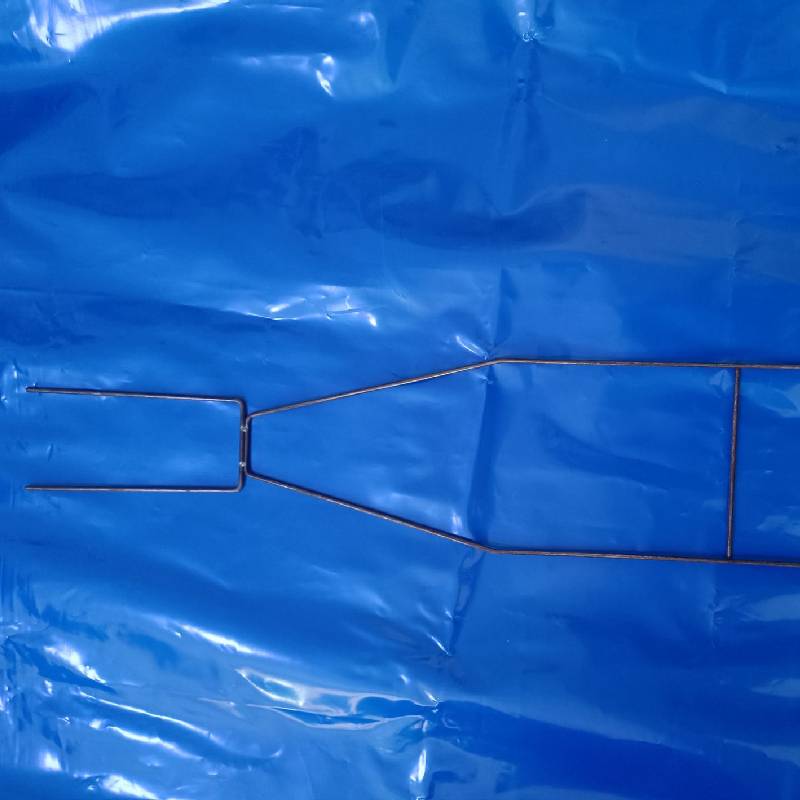
- Mobile Phone
- +8613931874955
- sales@cntcmetal.com
Innovative Solutions for Efficient Chicken Coop Fencing and Protection
The Importance of Chicken Fencing Safeguarding Your Feathered Friends
Raising chickens has become an increasingly popular hobby, not just for the promise of fresh eggs but for the joy of raising animals and connecting with nature. However, as the number of chicken enthusiasts grows, so do the challenges associated with keeping these delightful birds safe and healthy. One of the most critical investments a chicken owner can make is proper fencing. This article discusses the importance of chicken fencing and offers guidance on how to create a secure environment for your poultry.
The Threats to Your Chickens
Chickens are vulnerable to a range of threats that can take a toll on their safety and well-being. Predators such as raccoons, foxes, hawks, and even neighborhood dogs will not hesitate to seize an opportunity to snatch a chicken. Additionally, free-ranging chickens may wander into dangerous areas or be at risk of road traffic. Therefore, a robust fence serves as a first line of defense against these potential dangers.
Choosing the Right Type of Fencing
When considering chicken fencing, several factors come into play, including your budget, the size of your flock, and the type of predators in your area
. Common fencing materials include wood, wire, and chain link, each with its pros and cons.1. Wood Fencing A solid wood fence offers excellent protection against larger predators. However, it requires more maintenance and can be costly. Ensure that the wood is treated to withstand the elements, and don't forget that chickens can be quite curious and may peck at the wood.
2. Wire Fencing Chicken wire is a popular choice for its affordability and ease of installation. However, it’s important to note that standard chicken wire is not predator-proof. Raccoons and other animals can easily tear through it, so consider using heavy-duty welded wire fencing or hardware cloth for better security. When installing wire fencing, bury it a few inches underground to prevent burrowing predators.
3. Chain Link Fencing This is another strong option that can withstand various animal threats. Chain-link fences are durable and can be secured with tops or mesh to keep aerial predators at bay. However, they may be more expensive than other options, and installation can be more complicated.
chicken fencing

Height and Structure
Fencing height is also a crucial factor. Most chickens can’t fly very high, but certain breeds, especially those raised for egg production, may be capable of some elevation. A fence that is at least 5-6 feet high is commonly recommended to deter both aerial predators and chickens from hopping over. Adding a cover, like a netting or wire overhead, can protect against hawks and other birds of prey.
Creating a Safe Enclosure
In addition to perimeter fencing, creating a secure coop is essential for safeguarding your chickens, especially at night. The coop should have a solid floor, secure doors, and ventilation that does not compromise safety. Consider adding locks to doors that are tamper-proof, as crafty raccoons can be adept at opening simple latches.
Furthermore, a good chicken enclosure allows your birds to roam freely during the day while being safe from predation. Establishing a run, or a fenced area adjacent to the coop, gives chickens space to scratch, forage, and bask while being protected.
Maintenance and Upkeep
Lastly, regular maintenance of your fencing is vital. Check for any breaches, wear and tear, or shifts in the soil that may create gaps where predators can enter. Periodically inspecting the integrity of your fencing will keep your chickens safe and secure, reducing the chances of unexpected incidents.
Conclusion
In conclusion, investing in quality chicken fencing is not just about aesthetics; it's about creating a safe haven for your hens. With proper fencing, you can enjoy the benefits of raising chickens while ensuring their safety from the varied threats they face. As you set up your chicken yard, remember that a little effort in planning and protection goes a long way in promoting the health and happiness of your feathered friends. Whether you are a seasoned farmer or a newcomer to the chicken-keeping community, adequate fencing is foundational to your success.
share:
-
Yard Sign Stakes: Reliable Guardians of Outdoor SignsNewsAug.04,2025
-
Wall Ties: Invisible Guardians of Building StabilityNewsAug.04,2025
-
Resilient Web: The Super Guardian Power of Concrete MeshNewsAug.04,2025
-
Masonry Accessories: A versatile assistant on building foundationsNewsAug.04,2025
-
Iron Binding Wire: the 'invisible reinforcement specialist' in the fields of architecture and industryNewsAug.04,2025
-
Dynamic Spring: The diverse functions and excellent performance of Wire Tension SpringNewsAug.04,2025
-
Your Source for Concrete Wall Ties and Masonry AccessoriesNewsJul.10,2025



















